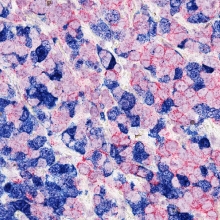Therapies that target signalling molecules that are mutated in cancers can often have substantial cartier replica short-term effects, but cartier love bracelet the emergence of resistant cancer cells is a major barrier to full cures1, 2. Resistance can result from secondary mutations3, 4, but in other cases there is no clear genetic cause, raising the possibility of non-genetic rare cell variability5, 6, 7, 8, 9, 10, 11. Here we show that human melanoma cells can display profound transcriptional variability at the single-cell level that predicts which cells will ultimately resist drug treatment. This variability involves infrequent, semi-coordinated transcription of a number of resistance markers at high levels in a very small percentage of cells. The addition of drug then induces epigenetic reprogramming in these cells, converting the transient transcriptional state to a stably resistant state. This reprogramming begins with a loss of SOX10-mediated differentiation followed by activation of new signalling pathways, partially mediated by the activity of the transcription factors JUN and/or AP-1 and TEAD. Our work reveals the multistage nature of the acquisition of drug resistance and provides a framework for understanding resistance dynamics visit this website
in single cells. We find that other cell types also exhibit sporadic expression of many of these same marker genes, suggesting the existence of a general program in which expression is displayed in rare subpopulations of cells.







